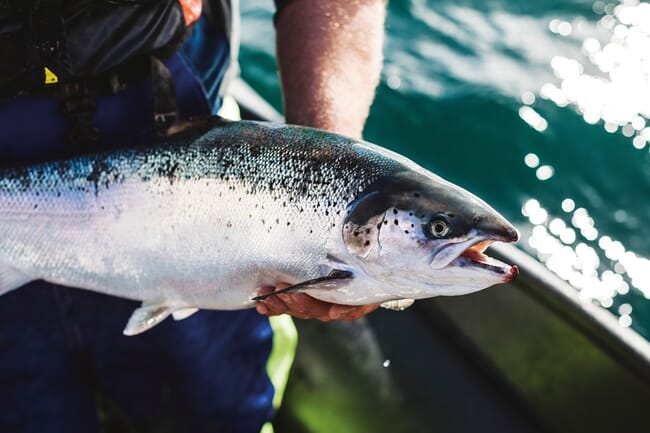A recent study in Aquaculture
by researchers from the Norwegian University of Life Sciences and the University of Florida
has suggested that despite high upfront costs, high-protein diets could improve growth performance and carcass weight in farmed salmon.

The study aimed to compare two energy-dense diets that are commonly used in Atlantic salmon aquaculture. The first diet emulated the industry-preference for feed with a high-fat and low-protein ratio. The second one was more protein-dense and had a lower fat content – often leading to higher prices when compared to the industry standard.
The researchers conducted three comparative feed trials with year-old smolt from 2009-2016. They decided to measure the salmon by carcass weight as opposed to full body weight. The decision to measure carcass weight gave them a better overview of both the biological and economic performance of the diets.
Results indicated that the high-protein diet led to higher feed deposition in the carcass (feed was converted to meat instead of being used in regular metabolic function). Since the high-protein diet led to better feed conversion rates, using this type of diet will translate into lower feed costs for producers. In addition to this benefit, the high-protein diet induced faster growth in the smolt. This could translate into a quicker production cycle – an additional economic benefit.
The model suggested that though the high-fat diets preferred by industrial salmon farmers may be cheaper during initial stages of production, high-fat diets are not necessarily linked to lower feed costs overall.
Read the abstract here.


